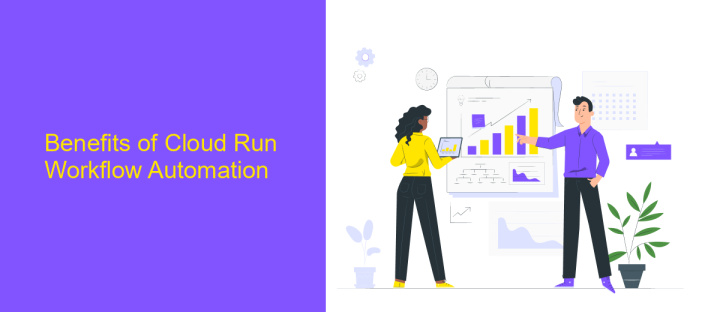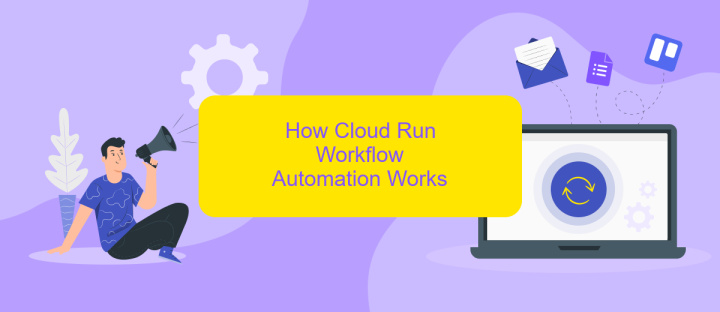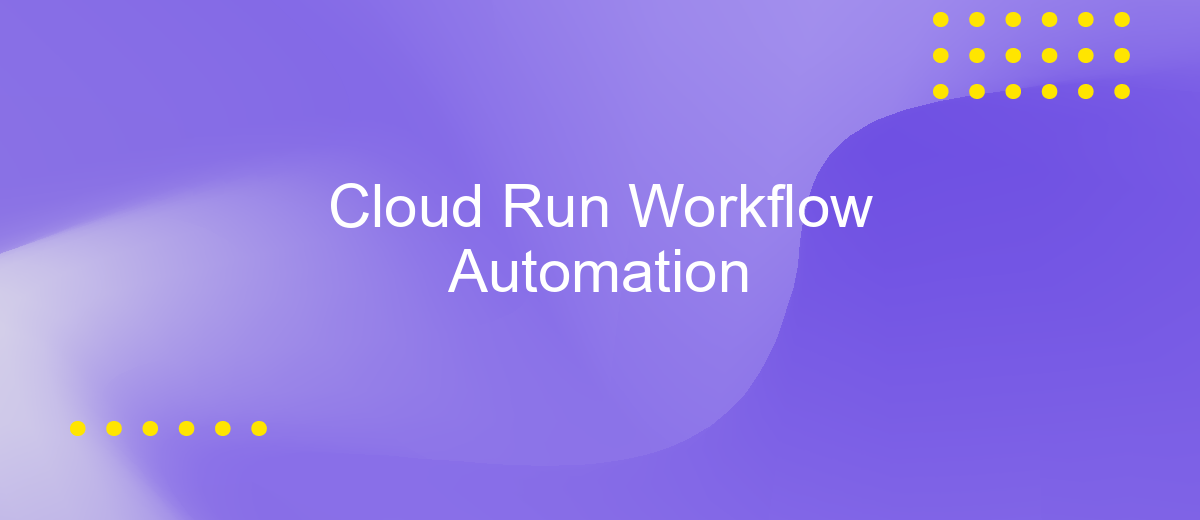Cloud Run Workflow Automation
In today's fast-paced digital landscape, businesses are constantly seeking ways to streamline operations and enhance efficiency. Cloud Run Workflow Automation offers a powerful solution, enabling organizations to automate complex workflows seamlessly. By leveraging the scalability and flexibility of cloud technology, companies can optimize their processes, reduce manual intervention, and achieve greater productivity. Discover how Cloud Run can transform your workflow management.
Introduction
In today's fast-paced digital landscape, businesses are increasingly turning to cloud solutions to streamline their operations. Cloud Run Workflow Automation emerges as a pivotal tool in this transformation, offering seamless integration and automation capabilities that enhance efficiency and reduce manual intervention.
- Automate complex workflows with minimal coding.
- Integrate various cloud services effortlessly.
- Improve scalability and flexibility of business processes.
- Reduce operational costs and human errors.
One of the key aspects of Cloud Run Workflow Automation is its ability to integrate with various third-party services. Tools like ApiX-Drive play a crucial role in this ecosystem, enabling businesses to connect different applications and automate data transfers without extensive technical expertise. By leveraging such integrations, companies can achieve a higher level of operational efficiency and focus more on strategic initiatives.
Benefits of Cloud Run Workflow Automation

Cloud Run Workflow Automation offers numerous benefits that streamline operations and enhance productivity. One of the primary advantages is the reduction of manual tasks, which minimizes human error and frees up valuable time for more strategic activities. Automation enables consistent and repeatable processes, ensuring that workflows are executed flawlessly every time. This leads to improved efficiency and faster turnaround times, allowing businesses to respond more quickly to market demands and customer needs.
Another significant benefit is the seamless integration with various services and APIs, such as ApiX-Drive. ApiX-Drive simplifies the process of connecting different applications and automating data transfers between them. This integration capability ensures that all tools within the workflow communicate effectively, reducing data silos and enhancing overall data accuracy. By leveraging these integrations, businesses can create a cohesive and automated ecosystem that supports continuous improvement and scalability. Ultimately, Cloud Run Workflow Automation empowers organizations to optimize their operations and drive innovation.
How Cloud Run Workflow Automation Works

Cloud Run Workflow Automation streamlines the orchestration of tasks and services, enabling seamless integration and execution of complex workflows. By leveraging Google Cloud's serverless platform, it allows developers to deploy and manage containerized applications effortlessly, ensuring scalability and efficiency.
- Define Workflow: Create a workflow by specifying the sequence of tasks and their dependencies using YAML or JSON files.
- Deploy Containers: Use Cloud Run to deploy containerized microservices, which are then managed automatically, scaling up or down based on demand.
- Trigger Automation: Set up triggers for workflow execution, such as HTTP requests, Pub/Sub messages, or scheduled events.
- Monitor and Manage: Utilize Google Cloud Console to monitor workflow execution, view logs, and manage configurations.
To enhance integration capabilities, services like ApiX-Drive can be employed to connect various applications and automate data transfers effortlessly. This ensures that different services communicate effectively, reducing manual intervention and increasing overall productivity. By utilizing Cloud Run Workflow Automation, businesses can achieve a higher level of operational efficiency and agility.
Use Cases

Cloud Run Workflow Automation offers a versatile platform for automating complex workflows and integrating various services. Businesses can leverage this technology to streamline processes, reduce manual effort, and enhance operational efficiency. By automating repetitive tasks, organizations can focus on more strategic initiatives, ultimately driving innovation and growth.
One of the primary use cases for Cloud Run Workflow Automation is in the realm of data processing. Companies can automate data ingestion, transformation, and analysis, ensuring that insights are generated in real-time. This is particularly beneficial for industries that rely on large volumes of data, such as finance, healthcare, and e-commerce.
- Automating data ingestion and transformation
- Integrating third-party services via ApiX-Drive
- Managing and orchestrating microservices
- Automating CI/CD pipelines for software development
Another significant use case is integrating disparate systems and services. Tools like ApiX-Drive can facilitate seamless integration, allowing businesses to connect various applications without extensive coding. This ensures that data flows smoothly across different platforms, enhancing overall productivity and reducing the risk of errors.
Best Practices
When implementing Cloud Run Workflow Automation, it is crucial to design workflows that are modular and reusable. Break down complex processes into smaller, manageable tasks that can be reused across different workflows. This not only simplifies maintenance but also enhances scalability and flexibility. Additionally, ensure that you are leveraging environment variables and secrets management to securely handle sensitive information, thereby maintaining the integrity and security of your workflows.
Integrating various services and APIs can significantly enhance the capabilities of your workflows. Utilize tools like ApiX-Drive to streamline integrations between different applications, allowing for seamless data transfer and automation. ApiX-Drive provides a user-friendly interface to set up and manage integrations without extensive coding, making it easier to connect disparate systems. Regularly monitor your workflows to identify bottlenecks and optimize performance, ensuring that your automation processes remain efficient and reliable.
FAQ
What is Cloud Run Workflow Automation?
How can I integrate different applications for workflow automation?
What are the benefits of using Cloud Run Workflow Automation?
Can I automate workflows without coding skills?
How do I ensure the security of my automated workflows?
Apix-Drive is a simple and efficient system connector that will help you automate routine tasks and optimize business processes. You can save time and money, direct these resources to more important purposes. Test ApiX-Drive and make sure that this tool will relieve your employees and after 5 minutes of settings your business will start working faster.

